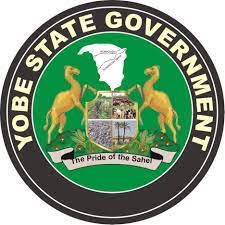In a bold move to enhance agricultural productivity and support livestock farmers, Yobe State Governor, Mai Mala Buni, has announced the establishment of a Ministry of Livestock Development, making Yobe the second state in Nigeria to create such a ministry after neighboring Borno.
In a statement made available from the office of the Secretary to the State Government (SSG) on Thursday, detailed the Governor’s directives for the ministry’s immediate takeoff.
Governor Buni has instructed the SSG, the Head of Service, and the Commissioner for Agriculture to collaboratively define the new ministry’s mandate, organize office accommodations, and assign essential staff to ensure the ministry begins operations swiftly.
The creation of the Ministry of Livestock Development is part of Governor Buni’s broader agricultural reform agenda aimed at diversifying Yobe’s economy and improving food security. Livestock farming, which plays a critical role in Yobe’s rural economy, is expected to receive substantial attention under this new initiative.
“This ministry is a key step toward addressing the challenges faced by livestock farmers, improving animal husbandry practices, and creating sustainable opportunities for economic growth,” the statement emphasized.
The decision aligns with ongoing efforts in Northern Nigeria to leverage agriculture as a driver of development. Yobe’s move follows a similar initiative in Borno State, where Governor Babagana Zulum established the Ministry of Fishery and Livestock, appointing Deputy Governor Usman Umar Kadafur to oversee its operations.
The ministry’s establishment has been widely praised by stakeholders, particularly livestock farmers who have long advocated for more government support to address issues like grazing reserves, veterinary services, and access to markets.
Experts believe the move will significantly enhance livestock management, reduce farmer-herder conflicts, and boost economic opportunities for rural communities. “This is a timely intervention,” said Ibrahim Musa, a livestock farmer in Damaturu. “We hope it will lead to better policies and access to veterinary services.”




